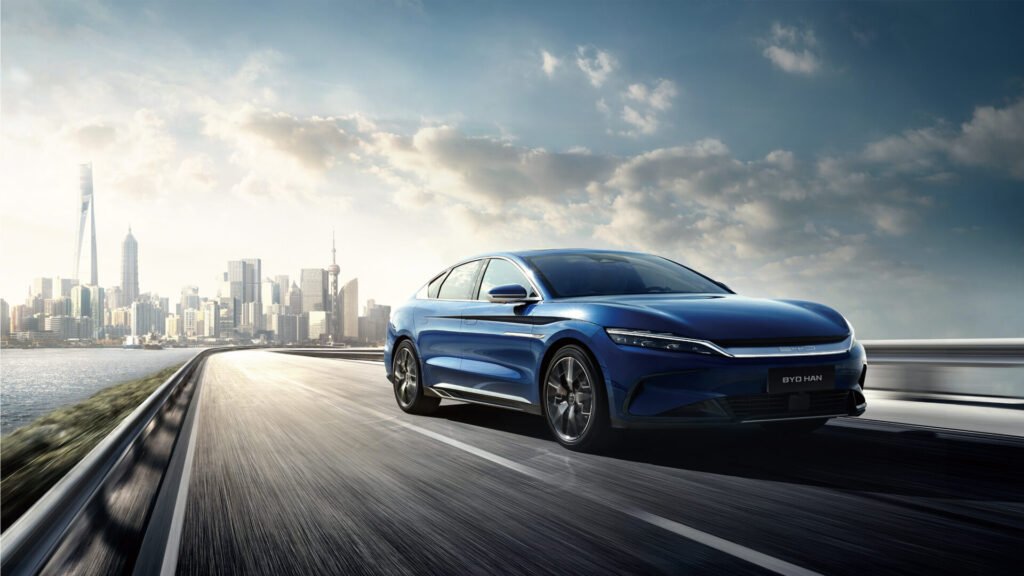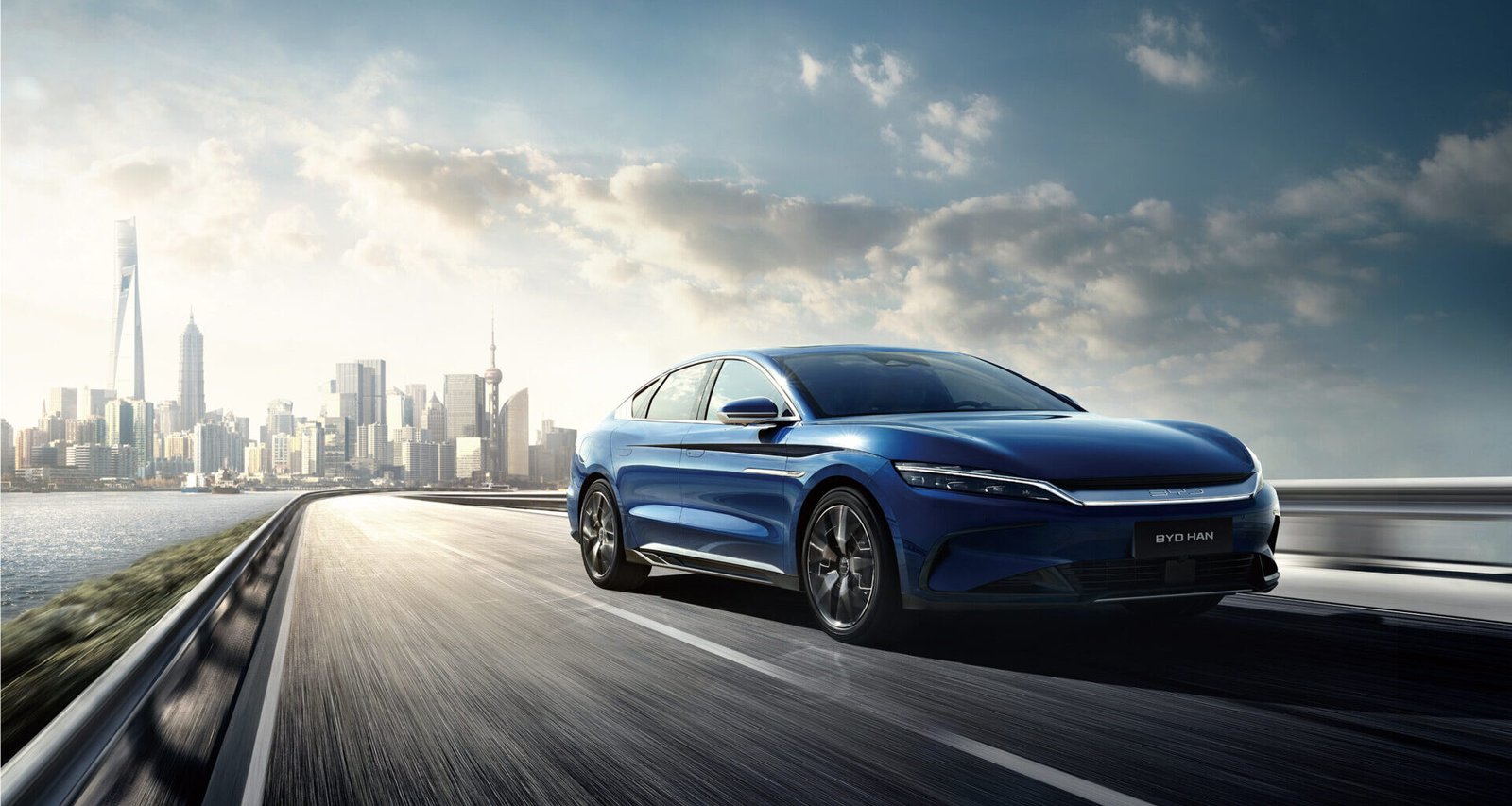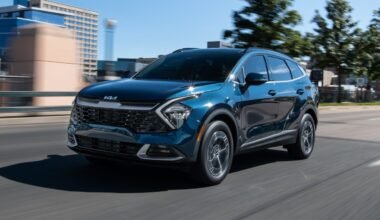Are Chinese EV cars worth considering? The answer is a resounding yes! In recent years, the Chinese EV car market has grown rapidly, with Chinese EV car manufacturers emerging as strong rivals to US automakers like Tesla.
As a result, it’s no surprise that China’s EV industry is expanding quickly, with a significant portion of passenger cars sold in the country being electric or plug-in hybrids. This fierce competition has propelled China ahead of the US in terms of EV adoption, making it an exciting time to explore the best Chinese EV cars to buy right now.

Overview of the Chinese EV Car Market
Growth of the Chinese EV Car Market
- The Chinese EV car market has been growing rapidly due to the government’s strong support for the industry. In fact, the Chinese government aims to have 25% of all new cars sold in the country to be electric by 2025, and 50% by 2035. As a result, Chinese EV car sales have been increasing, with almost 1.4 million EVs sold in China in 2022, representing 5.4% of total new car sales in the country.

Comparison of Chinese EV Cars to Other Countries
- China is not the only country investing heavily in EVs. Other countries like Norway and the Netherlands have a higher percentage of EVs on their roads than China. However, Chinese EV cars are often more affordable than those produced in other countries, which makes them more accessible to people from all walks of life.
EV Car Sales in China
- Chinese automakers are taking advantage of the country’s growing demand for EV cars, with BYD and NIO being two of the top-selling brands in the country. BYD sold over 200,000 EVs in China in the first half of 2023, while NIO sold over 100,000 EVs in the same period. These figures demonstrate that Chinese automakers are leading the way in the EV car market.
Top Chinese EV Car Manufacturers
BYD
- BYD is one of the largest EV car manufacturers in China and is also one of the world’s largest producers of rechargeable batteries. The company offers a range of EV cars, including the BYD Han, which is a popular model in China. The Han offers a range of over 600 kilometers on a single charge and has a top speed of 220 kilometers per hour.
NIO
- NIO is another popular Chinese EV car manufacturer that has been making waves in the industry. The company’s ET5 model is a mid-size sedan that offers a range of up to 510 kilometers on a single charge. The car features a sleek, modern design and advanced technology features, making it a popular choice for drivers in China.
Tesla
- While Tesla is not a Chinese company, it is worth mentioning as it is one of the most popular EV car manufacturers in China. Tesla’s Model 3 is the best-selling EV car in China, with over 100,000 units sold in the first half of 2023. The Model Y is another popular model in the country, with over 40,000 units sold in the same period.
Other Chinese EV Car Manufacturers
- Other notable Chinese EV car manufacturers include SAIC Motor, which produces the Roewe Ei5 and the MG ZS EV, and GAC Motor, which produces the Aion S and the Aion LX.
Government Policies and Subsidies
EV Subsidies in China
- The Chinese government offers significant subsidies to encourage the adoption of EV cars. These subsidies can range from $3,000 to $8,000, depending on the type of car and its range. Additionally, the government offers subsidies for the development of EV charging infrastructure.
Regulations for EV Car Production
- The Chinese government has implemented strict regulations for EV car production to ensure that cars meet certain safety and quality standards. This has helped to build consumer confidence in Chinese EV cars and has contributed to their growing popularity.
Government Support for EV Car Charging Infrastructure
- The Chinese government has also been investing heavily in EV car charging infrastructure. In 2022, the government announced plans to build 800,000 EV charging stations across the country by 2030, which will significantly improve the charging infrastructure available to Chinese EV car owners.
Impact of Government Policies on the Growth of the Chinese EV Car Market
- The Chinese government’s policies and subsidies have played a significant role in the growth of the country’s EV car market. Without these policies, it’s unlikely that the industry would have grown as quickly as it has.
Environmental Benefits of Chinese EV Cars
Reduction of Greenhouse Gas Emissions
- One of the most significant benefits of EV cars is their reduced impact on the environment. Chinese EV cars can help to reduce air pollution and mitigate climate change since they don’t emit greenhouse gases.
Reduction of Particulate Matter
- EV cars can also reduce particulate matter, which is a major contributor to air pollution in many Chinese cities. By reducing particulate matter, EV cars can improve air quality and reduce the risk of respiratory illnesses.
Battery Production and Disposal
- Battery production and disposal can have a significant environmental impact. Chinese EV car manufacturers are working to mitigate the environmental impact of this process by developing new battery recycling facilities and using more sustainable materials in battery production.
Infrastructure Needed to Support the Chinese EV Car Market
Charging Stations and Battery Recycling Facilities
- One of the most significant challenges facing the Chinese EV car market is the need for more charging stations and battery recycling facilities. While the government is investing heavily in charging infrastructure, more needs to be done to ensure that EV car owners have access to charging stations when they need them.
Current State of EV Car Charging Infrastructure in China
- As of 2023, there were over 1.3 million EV charging stations in China, with plans to build many more. However, there are still many areas in China where charging infrastructure is lacking, which can make it difficult for EV car owners to travel long distances.
Government Initiatives to Support Charging Infrastructure Development
- The Chinese government has announced plans to build hundreds of thousands of new charging stations across the country in the coming years. Additionally, the government is investing in battery recycling facilities to ensure that batteries are disposed of in an environmentally friendly way.
Challenges Facing the Chinese EV Car Market
Overproduction of EV Cars
- One of the significant challenges facing the Chinese EV car market is overproduction. Because the government offers subsidies for EV car production, some manufacturers have been producing too many EV cars, leading to a surplus.
Abandoned EV Cars Resulting from Failed Ride-Hailing Companies
- Another challenge facing the Chinese EV car market is the number of abandoned EV cars resulting from failed ride-hailing companies. These cars can be left to deteriorate, causing environmental damage and wasting valuable materials.
Introduction of Newer EV Car Models
- As with any industry, the Chinese EV car market is constantly evolving, with new models being introduced all the time. This can make it difficult for consumers to keep up with the latest trends and find the best EV car for their needs.
Consequences of Excessive Capital in the Industry
- The Chinese EV car market has seen a significant influx of capital in recent years, which has led to some negative consequences. For example, some manufacturers have been producing too many cars, leading to overproduction and a surplus of EV cars.
Top-Selling Chinese EV Car Models
| Model | Range | Top Speed | Price | Charging Time |
|---|---|---|---|---|
| Wuling Hongguang Mini EV | 120 km | 100 km/h | ~USD 3,400 | 7.5 hours |
| BYD Han | 600 km | 220 km/h | ~USD 32,000 | 8 hours |
| NIO ET5 | 510 km | 200 km/h | ~USD 52,000 | 8.5 hours |
| Hongqi E-HS9 | 500 km | 200 km/h | ~USD 78,000 | 8 hours |
| Zeekr 001 | 700 km | 200 km/h | ~USD 39,000 | 8 hours |
If you’re interested in reading more about EV cars and want to explore further, here are two articles you might find informative:
- Electrifying the Future: A Guide to Buying the Best EV Cars in 2023: This article can provide insights into the best electric vehicle options available in 2023.
- Diving into the Best Electric Vehicle Models of 2023: If you’re interested in specific electric vehicle models and their features, this article might be a great read.
Feel free to click on the links to access these articles and expand your knowledge about EV cars in 2023.
Impact of Chinese EV Cars on the Global Automotive Industry
China’s Dominance in the EV Car Market
- China’s dominance in the EV car market is undeniable. With such a large population and growing demand for EV cars, China is set to be a major player in the global automotive industry for years to come.
Implications for Traditional Automakers
- The rise of Chinese EV car manufacturers has significant implications for traditional automakers. As EV car adoption continues to grow, traditional automakers will need to adapt to keep up with the changing market.
Chinese EV Car Manufacturers Driving the Trend Towards Electric Cars
- Chinese EV car manufacturers are driving the trend towards electric cars, with their innovative designs and advanced technology features. As more Chinese EV cars hit the road, the potential for a cleaner and more sustainable future becomes increasingly possible.
Future of the Chinese EV Car Market
Predictions for Future Growth
- The Chinese EV car market is expected to continue growing in the coming years, with more EV cars hitting the road and more charging infrastructure being built.
Innovation in the Chinese EV Car Market
- Chinese EV car manufacturers are constantly innovating, with new models and technology features being introduced all the time. This innovation is helping to drive the trend towards electric cars and making EV cars more accessible to people from all walks of life.
Potential Challenges and Obstacles for the Future
- While the future of the Chinese EV car market looks bright, there are still challenges and obstacles to overcome. For example, the overproduction of EV cars and the need for more charging infrastructure are issues that will need to be addressed as the industry continues to grow.
Conclusion
Chinese EV cars are leading the charge towards electric vehicles, with their innovative designs, advanced technology features, and affordable prices. Through government policies and subsidies, environmental benefits, and infrastructure development, the Chinese EV car market is poised to be a major player in the global automotive industry. Furthermore, as more EV cars hit the road, the potential for a cleaner and more sustainable future becomes increasingly possible.








